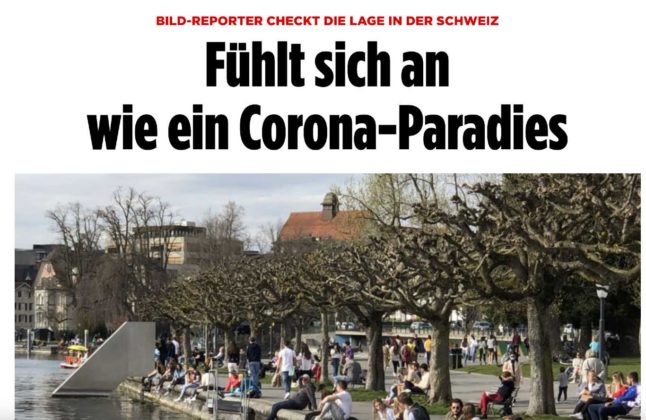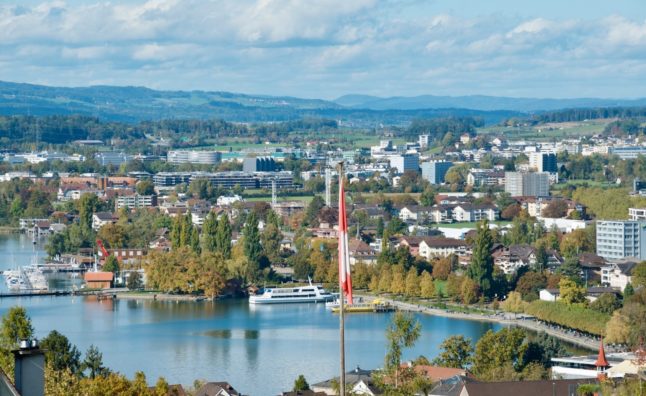According to a report published on Sunday by German tabloid Bild, the Swiss canton of Zug is a “city of happiness” full of “happy people who have the courage to live”.
The tabloid, which paid a visit to the central canton of Zug on April 11th, was critical of Germany’s handling of the coronavirus pandemic and suggested they should take a leaf out of the book of their southern neighbours.
In particular, Bild wrote that the rules in Switzerland were much clearer and easier to understand as they were put in place across all of the country’s 26 cantons, unlike the supposed ‘patchwork’ of rules in place in Germany.
“What is allowed in Switzerland and what is not fits on a beer mat” the tabloid wrote.

Is Switzerland really a coronavirus paradise?
The report is part of a long-running series by the German tabloid – one of the most persistent critics of Chancellor Angela Merkel – which contrasts the supposed freedom afforded to people in Switzerland with the stricter rules of Germany.
On closer examination however, the report does gloss over some of the major differences between the two countries.
First and foremost, while the differences in coronavirus rules from canton to canton may be less significant than they are across German states, this has not always been the case.
Indeed, for the majority of the pandemic, neighbouring Swiss cantons put in place vastly different rules – leading to concerns of people travelling across borders to go shopping or visit restaurants.
The current legal situation in Germany and Switzerland is also remarkably similar, in the there are a set of agreed federal minimums, with states free to put in place stricter measures when certain metrics are met – for instance hospitalisations, infection rates and intensive care unit capacity.
As at April 2021 however, cantonal variations are comparatively minimal – although several Swiss cantons have considered allowing bars and restaurants with terraces to open even without federal approval.
Are the rules different in Switzerland and Germany?
Despite the suggestions made in the report, not all rules in Switzerland are more relaxed. Indeed, some are stricter.
As in Germany, bars and restaurants have been forced to close in Switzerland (other than for takeaway food and drinks) since late December.
The rules on wearing masks is largely the same in Switzerland and Germany, although most areas require an FFP2 mask in the latter rather than a simple cloth or medicinal mask.
EXPLAINED: What are Switzerland’s current coronavirus measures?
Masks are required for workers in all indoor areas in Switzerland, unlike in Germany, where they are only required in workplaces with “confined spaces”. Also unlike Germany, in Switzerland masks are also required for all car drivers and passengers (unless they all live in the same household).
Also unlike in Germany, working from home has been mandatory in Switzerland for several months. In Germany, workers are “strongly encouraged” to work from home where possible, however there is no obligation.



 Please whitelist us to continue reading.
Please whitelist us to continue reading.
Member comments